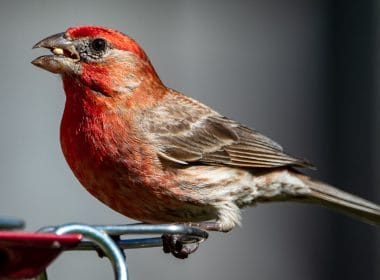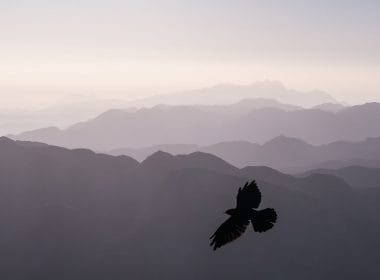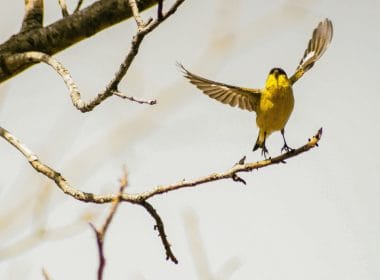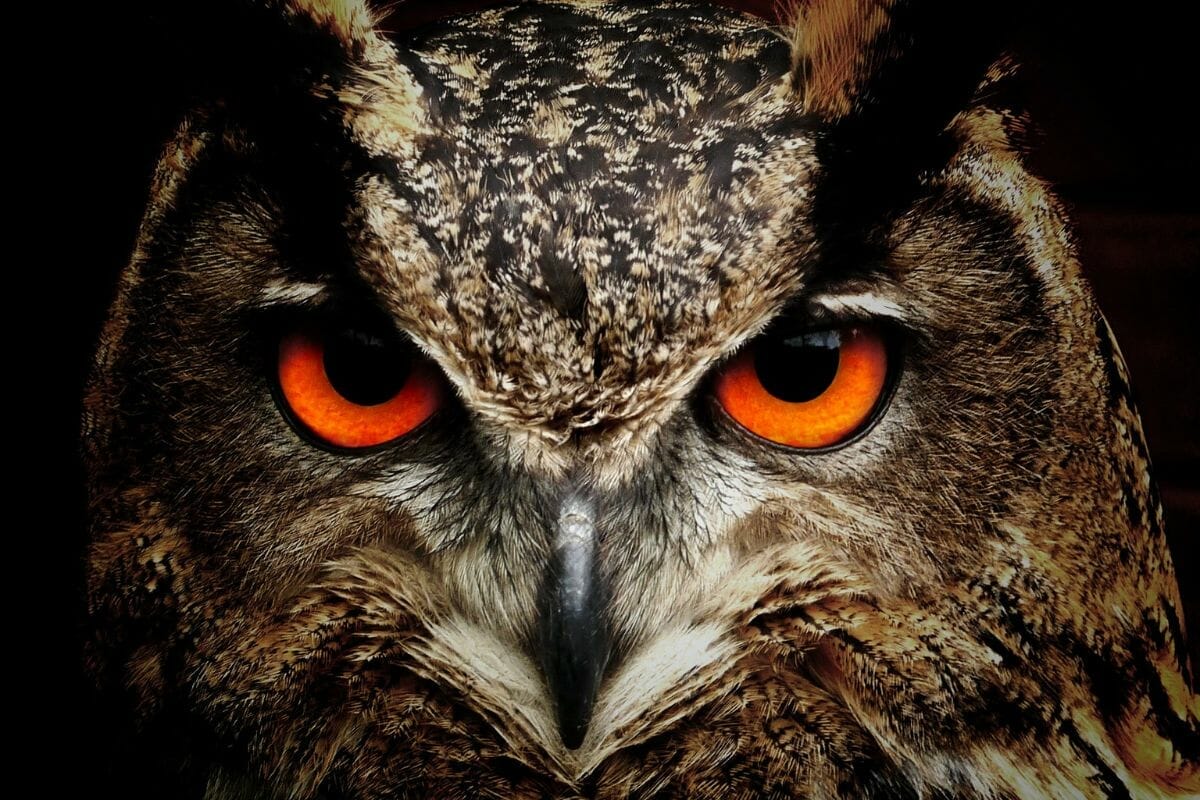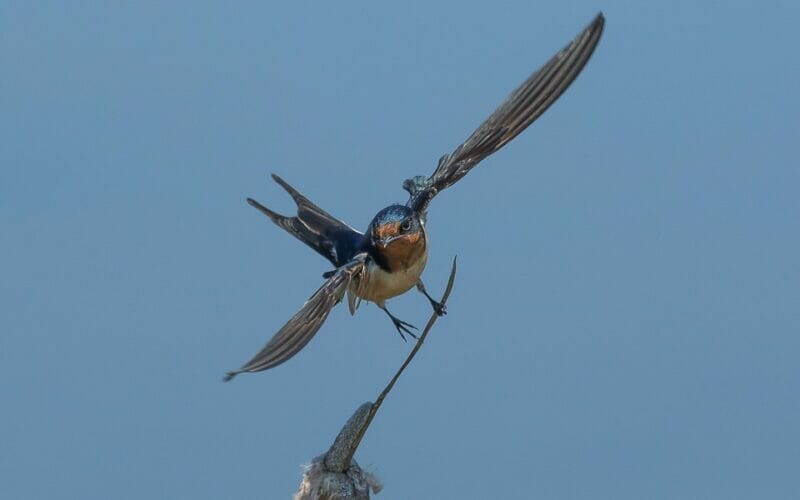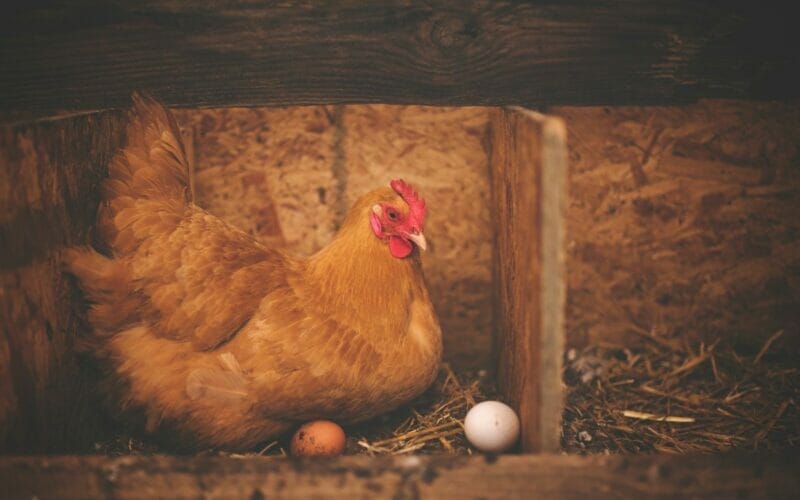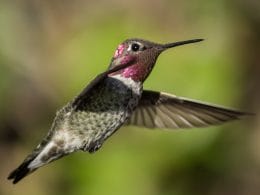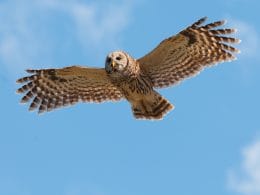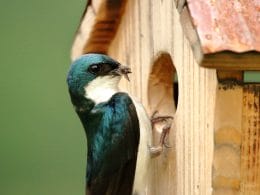Owls are well known for their hoot in the night. These beautiful birds are also considered a symbol of wisdom and longevity.
But how long do owls live in the wild and captivity? The majority of owl species live between five and twelve years in their natural environment.
There are a variety of reasons why owls die, from old age and disease to being hunted.
In this article, I explore the different owl species and their lifespans, together with common owl deaths.
How Long Can An Owl Live?
In the wild, owls can live between 5 years and 12 years. These beautiful, large birds can live even longer in captivity.
The lifespan of an owl depends on its species and its living environment. Owls need a protected space where they can build a nest for their chicks and sleep.
This can be difficult for owls to find as more and more of their natural habitats are threatened.
In addition, the size and weight of an owl can also affect the lifespan of the animal. As a rule of thumb, larger owls live for longer than smaller owls.
This being said, owls in captivity typically live longer than wild owls, regardless of their size.
The Lifespans Of Different Owl Species
How long an owl can live depends largely on what species it is, and whether it’s wild or kept in an enclosure.
Here are some owl species and their average lifespan.
Barn Owl
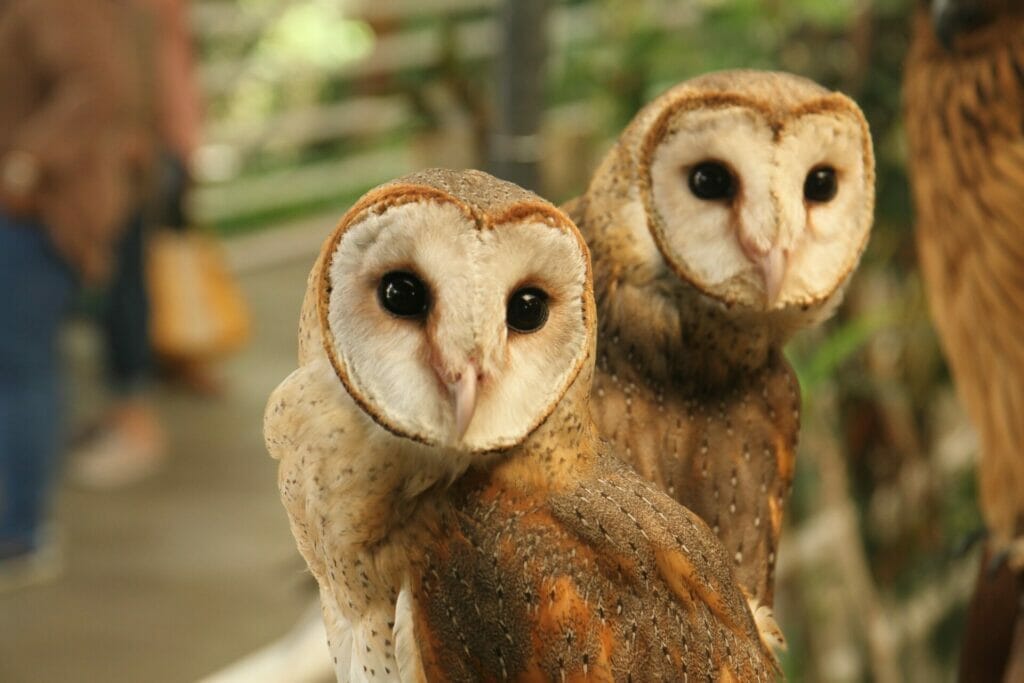
Barn owls can live for four to nine years in the wild. However, they can live for up to 15 years in captivity.
Snowy Owl
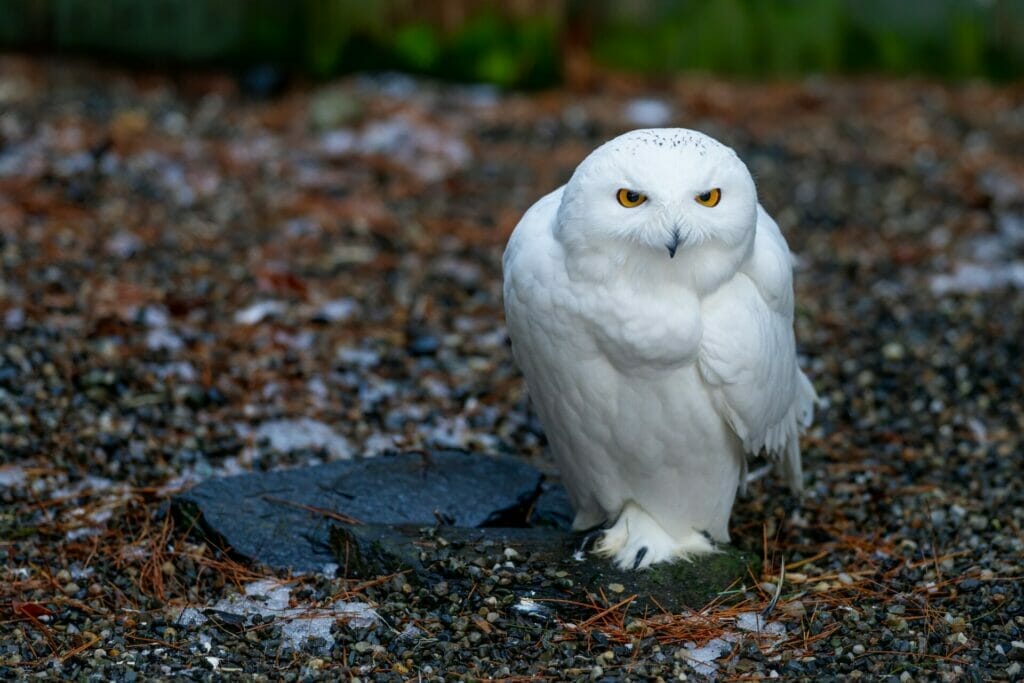
A snowy owl can live an incredible 30 years in captivity but only up to 10 years in the wild.
Burrowing Owl
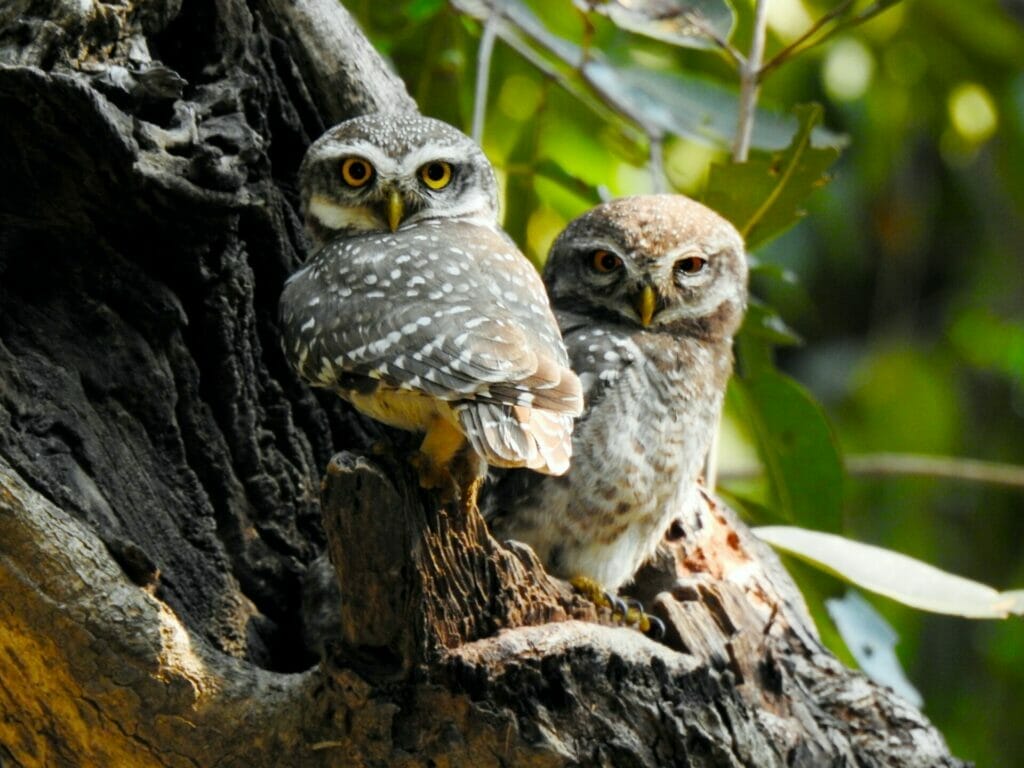
Burrowing owls are much smaller than barn owls, so they only live between 3 years and six years in the wild. However, these birds can live up to 12 years in an enclosure.
Great Horned Owl
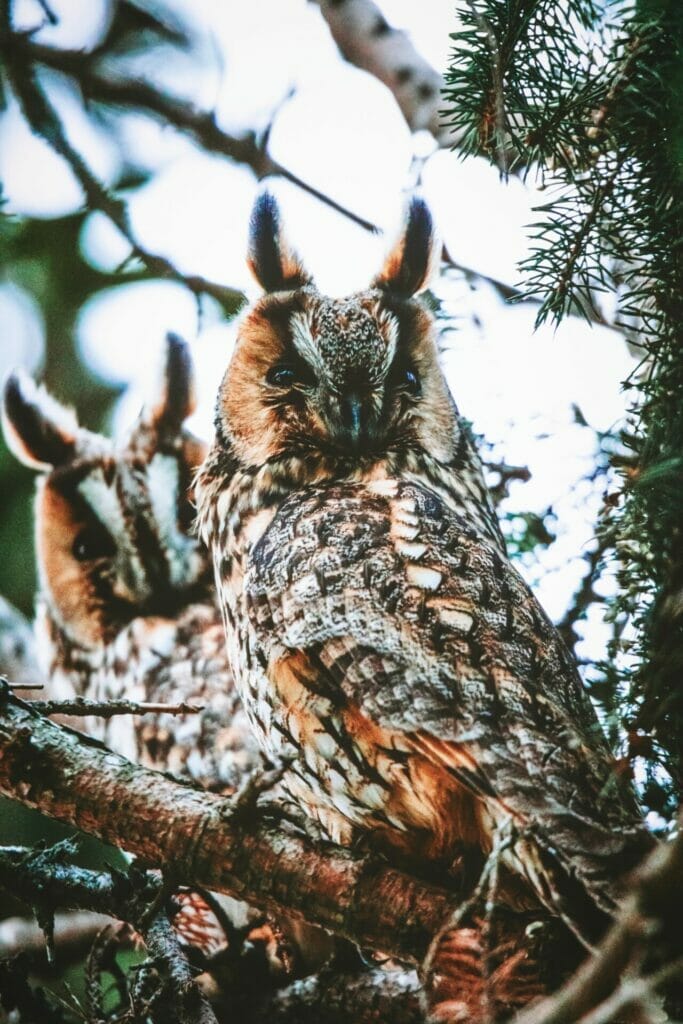
Great horned owls have an impressive size. They live for up to 35 years in captivity but only maximum 27 years in the wild.
Great Gray Owl
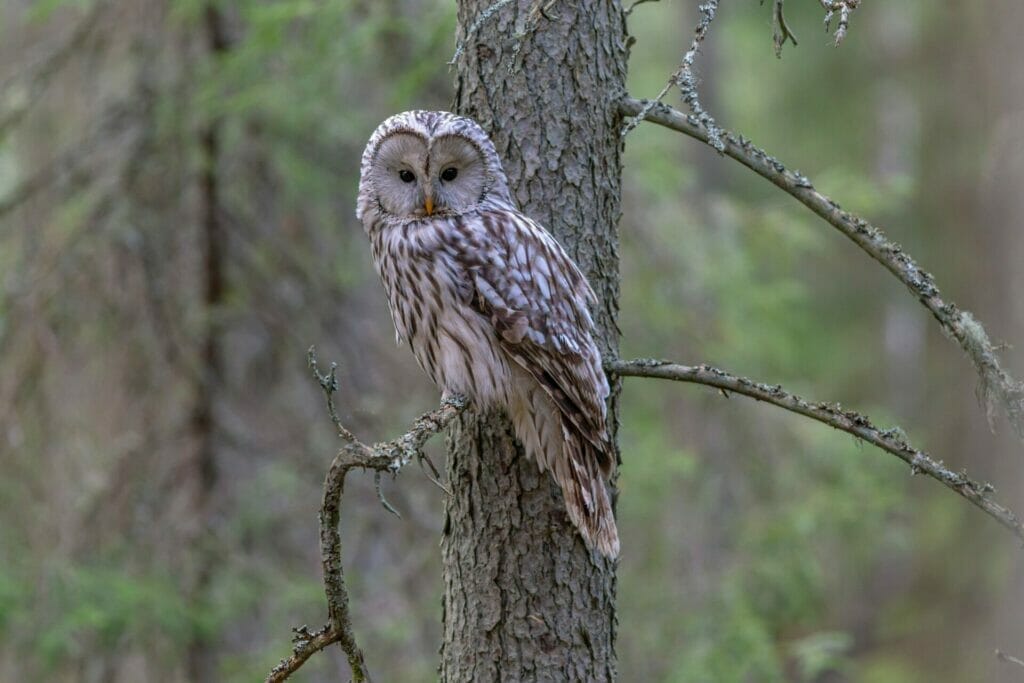
Great gray owls can live for up to 40 years in an enclosure but only 12 years in the wild. This is due to their shrinking natural habitat.
Barred Owl
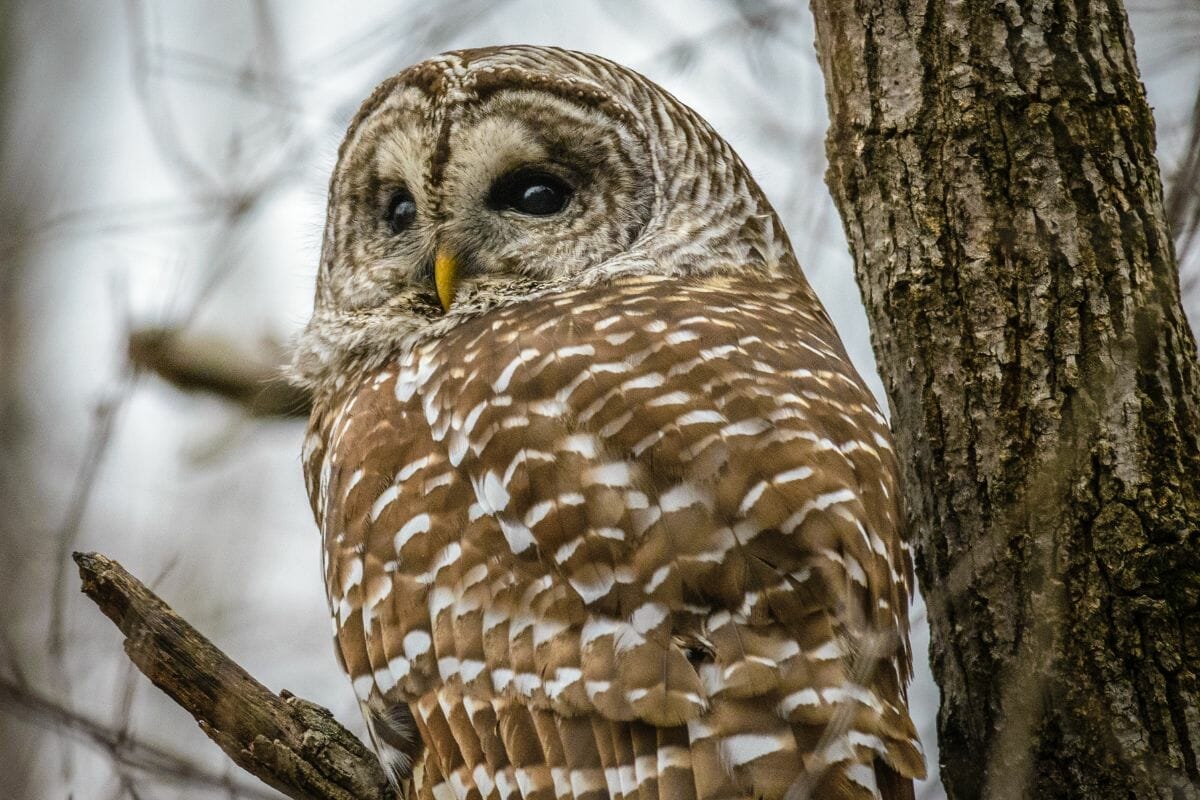
Barred owls live for an average of 20 years in captivity but only up to 10 years in the wild.
Tawny Owl
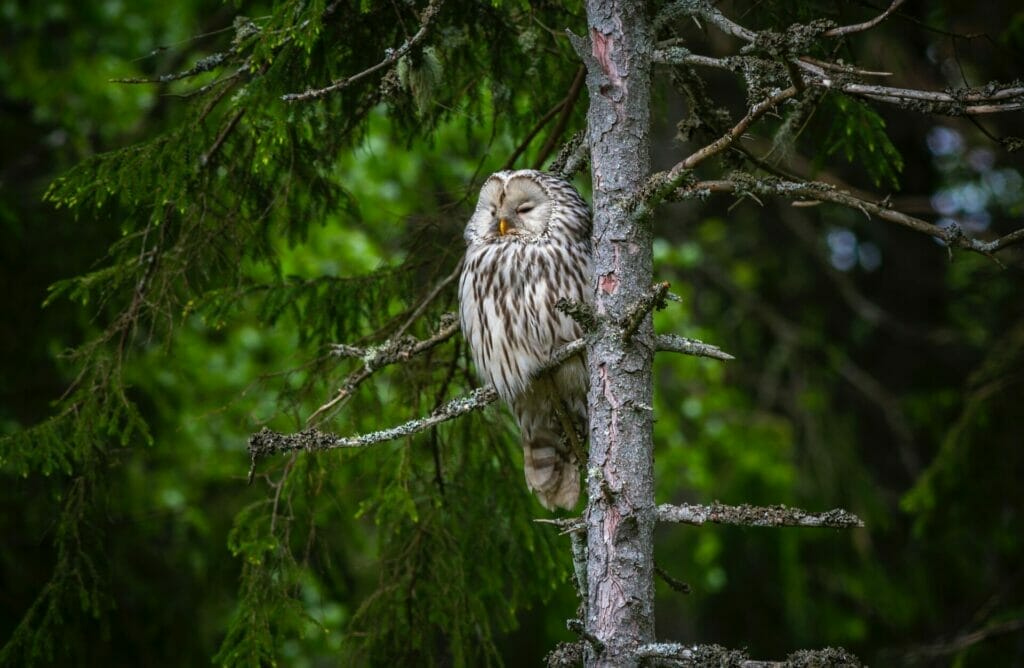
Tawny oils can survive for more than 15 years in captivity but only 3 to 7 years in the wild.
Screech Owl
Screech owls can live in an enclosure for up to 20 years but only two to eight years in the wild.
Causes Of Owl Deaths
Just like other birds, an owl’s lifespan depends on so many different factors, and so does their death.
There are a variety of different threats to owls, including diseases, lack of food, habitat loss, collisions and natural predators.
Loss Of The Owls’ Natural Habitat
Humans are one of the biggest threats to owls and other bird species.
More and more of the owl’s habitat is opened up by humans building, highways, roads, buildings or simply using the owls’ space for agricultural purposes.
When owls lose their natural habitat, then these birds don’t have anywhere to source their food and raise their chicks.
Owl Diseases
Similar to other animals, owls are also threatened by natural diseases, such as the West Nile virus.
Predators
Owls have a variety of predators. For example, smaller owls are naturally hunted by larger owls and other large birds of prey.
The Life Cycle Of An Owl
In order to fully understand why an owl lives to its natural age, it’s a good idea to look at the owl life cycle.
Owl Eggs
The number of eggs a female owl can lay depends on their food intake. An owl needs a good amount of protein to create an egg.
Owls lay their eggs only once a day and they can produce almost 15 eggs during the mating season.
Baby Owls
Baby owls, also known as hatchlings, have very soft white feathers and pure pink skin. This applies to all owl species.
Newly hatched baby owls keep this cozy, downy plumage for a few months which means that they are dependent on the shelter from their nest and mother owl.
They also need their mother to feed them regularly until the chicks are strong enough to hunt their own food.
Baby owls are also born blind and they won’t have their full eyesight until they are a few months old.
Young Owls
After a couple of months, the young owls start to gain their full eyesight and a thicker plumage.
While they slowly develop their ability to fly after two months, they often stay with their mother for their first year.
This is to ensure that the juvenile owls have fully developed and they can survive out in the wild.
During the first months, young owls grow bigger in weight and length. They lose their soft baby plumes and develop waterproof feathers.
Similar to other young animals, juvenile owl chicks are playful and talkative. They slowly learn to fly and hunt but still prefer to stay near their hatching site.
Adult Owls
Most young owls are considered adults after nine to twelve months.
The majority of owl species also become sexually mature after a year. This being said, some species only mate after three years.
Owls are known to be monogamous birds which means that they choose to mate with their partner for life.
These carnivorous birds regularly hunt for a variety of different prey, including small mammals, such as mice and rabbits.
Final Thoughts
The lifespan of an owl depends on its species and its habitat. Most owls live between 5 and 12 years in the wild, although there are exceptions.
The great horned owl can live for up to 27 years in the wild. Plus, owls in captivity can also live much longer.
FAQ
The longest lifespan of an owl in the wild can vary depending on the species, but some of the longest-lived owl species include the Great Horned Owl and the Snowy Owl. These species can live up to 20 years or more in the wild. Other owl species, such as the Barn Owl and the Eastern Screech Owl, have an average lifespan of around 10-15 years in the wild. The lifespan of an owl in captivity can be longer than in the wild due to the lack of predators and other hazards as well as the provision of food and medical care.
Despite what you might think, Owls are not considered to be intelligent. Whilst the size of their brain is relatively large compared to the size of their body, Crows and other birds from the Corvid family, as well as Starlings and Parrots have proven to be smarter.
Owls are naturally reclusive and shy birds that avoid contact with humans. They may become stressed or frightened if they are approached too closely. It is best to observe them from a distance and with binoculars or a telescope. While in captivity, they may tolerate human presence and can be used for education, rehabilitation and research purposes, they should be handled with care and respect.
